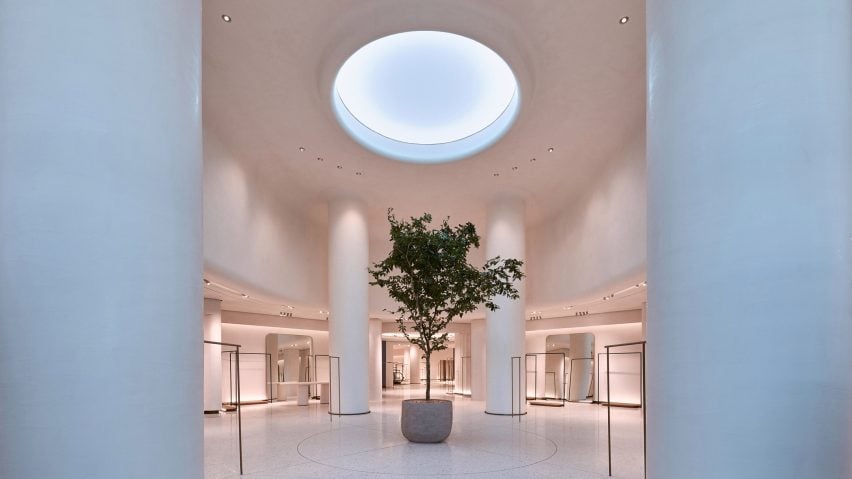
Light Cognitive develops artificial skylight that mirrors the actual colour of the sky outside
Finnish brand Light Cognitive has created a circular LED skylight that gradually changes colour according to the time of day, in a bid to bring the benefits of natural light to a windowless retail space in Barcelona.
Called Oculus, the artificial window was made using the company's titular, patented technology, which has been shortlisted for this year's Dezeen Award in the lighting design and architectural lighting design categories.
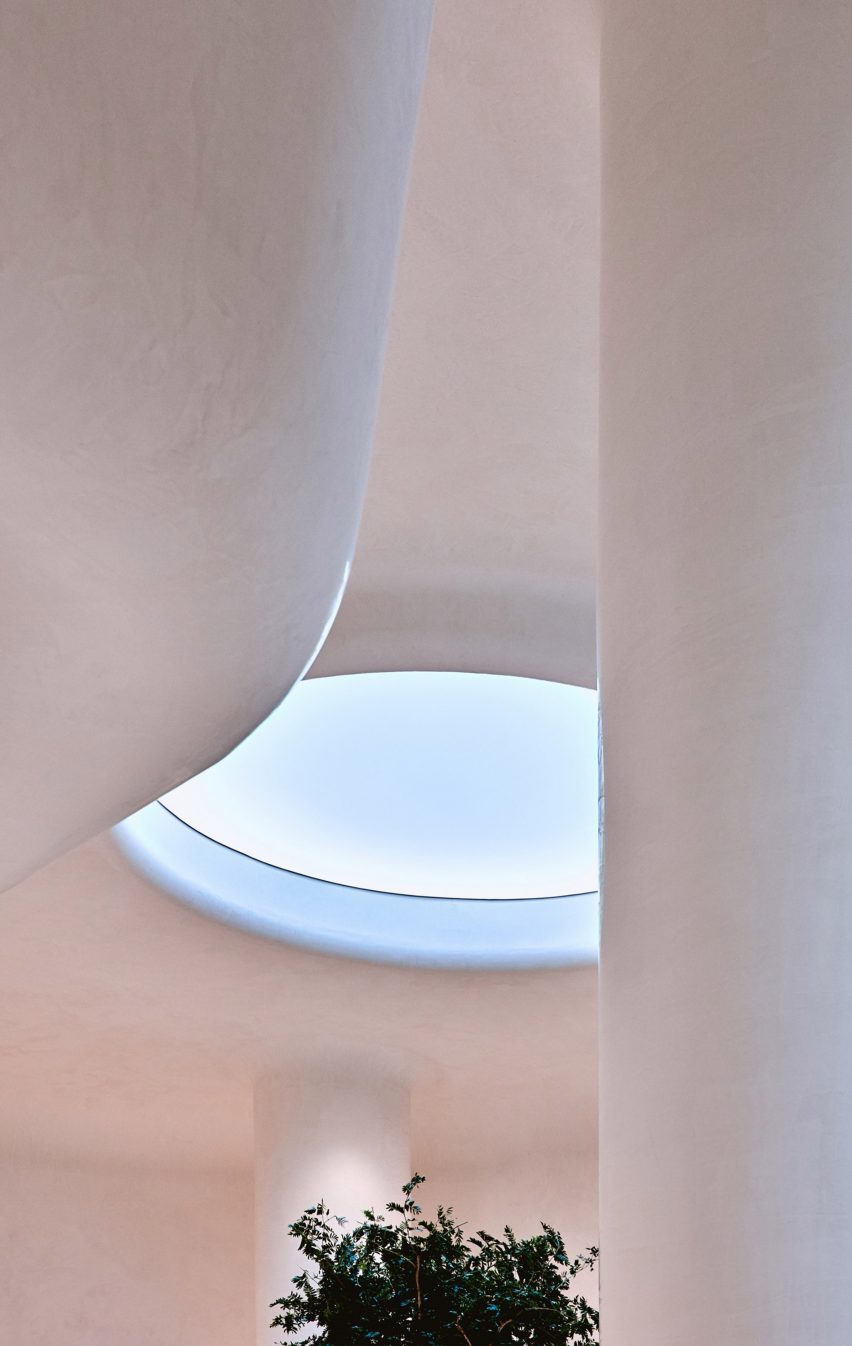
Created as a bespoke commission for a high street fashion retailer, Oculus's name nods to the circular opening found at the centre of domes in Ancient Roman architecture, which allowed natural light to filter into the cavernous space below.
To recreate a similar sense of openness and connection to nature within the confines of the shop, Light Cognitive designed a nearly two and a half metre wide light installation.
The installation circles through the natural colours of the sky throughout the day, from the vivid reds and oranges of dawn to the clear blue of the midday sun and the warm, muted hues of dusk.
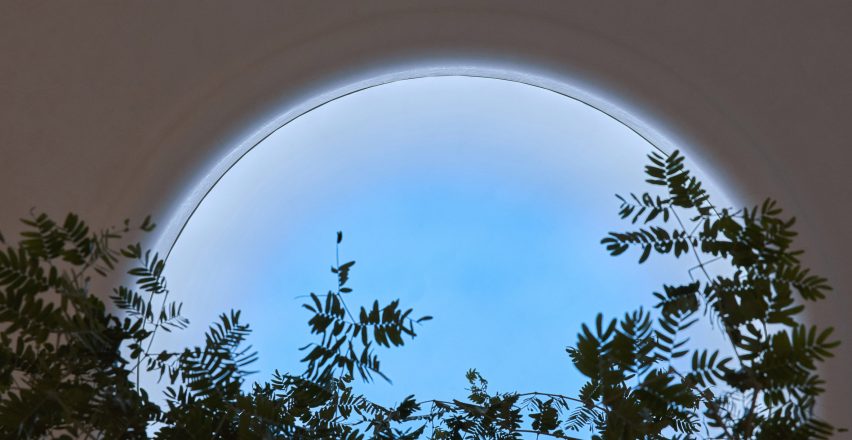
Crucially, rather than simply making use of generic sky-like shades, Light Cognitive's technology matches the colour and intensity of the light outside, based on an actual model of the sky above Barcelona as captured on a clear day.
"With this model, we can define what kind of light is radiating from any point of the sky at any time," the company's founder Sami Salomaa told Dezeen.
"Based on this, we can generate smooth colour and intensity gradients. Oculus mimics the changes in light patterns we see in the dome of the sky, with the edges taking on the colours of the horizon and the centre representing the point right above us."
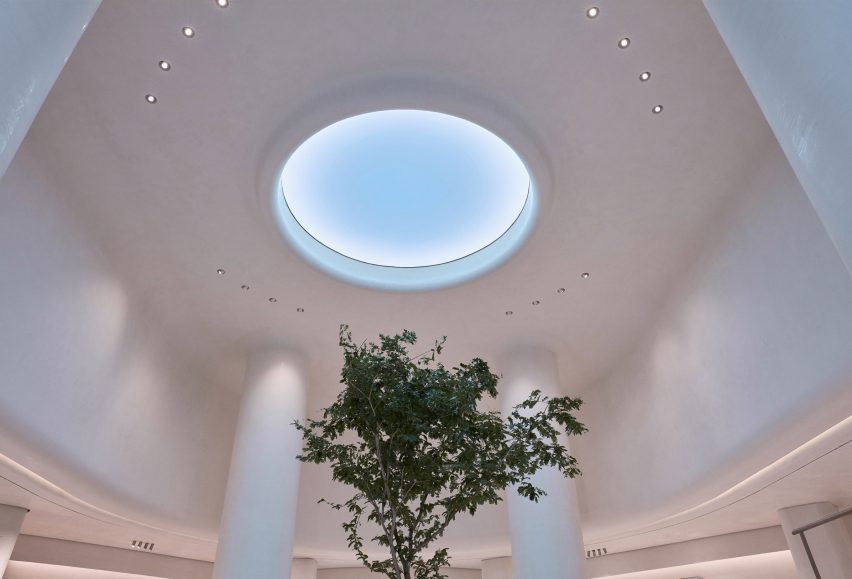
These gradual shifts in the quality of light are made possible through a series of individually controlled LED modules, each featuring multiple types of LEDs that are capable of emitting light in a wide spectrum of colours and intensities, that approximate natural light.
The LEDs that are illuminated, at what time and in what way is determined by the company's machine learning algorithm.
"This enables the simultaneous optimization of LED selection, colour and intensity to create a smooth continuous brightness and colour gradient," explained Salomaa.
The LEDs are arranged underneath a circular diffusor, creating the impression of an ever-evolving light surface while reducing shadows and glares.
As well as allowing customers to evaluate the clothing they are about to purchase in a close approximation of natural light, Salomaa says the Light Cognitive technology is able to support our body's natural circadian rhythm by emitting stimulating blue light throughout the day before gradually phasing it out towards the evening.
This is crucial because blue light suppresses the production of our natural sleep hormone melatonin, which is also why looking at phone or laptop screens before bed can impact our ability to go to sleep.
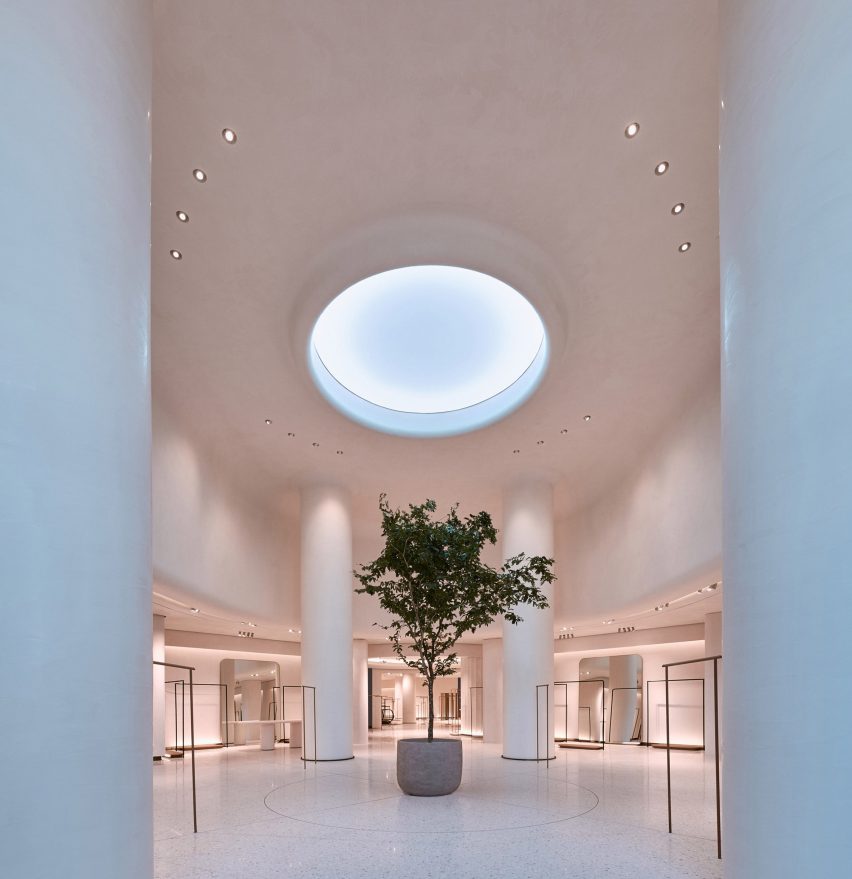
"Based on feedback, we also believe that Oculus's visual appearance clearly has a psychological impact on people, especially in windowless spaces, as it provides a similar look and feel to a skylight," Salomaa explained.
"We wanted to create lighting that would bring the happy feeling you get from a beautiful morning, sunny day or a stunning sunset."
Light Cognitive, which was established in 2014, has also used its technology to create ready-made artificial window panels.
Other lighting projects that have been nominated in Light Cognitive's categories at the Dezeen Awards include Tokyo's Okura hotel, a Snøhetta-designed underwater restaurant in Norway and an AI-powered reading light that narrates books to children.